Gum recession is problem for many. Is it a problem for you? Maintain your beautiful smile naturally with a daily oral care regimen. First, we’ll start off with an explanation of what gum recession is and what steps you can take to prevent it – naturally.
What is Gum Recession?
Gum recession or the correct dentistry term gingival recession usually affects people 40 years of age and older, however younger people are also vulnerable to this acute condition. The gingiva is a soft tissue that covers and protects the root of the tooth. The tiny space between the tooth and the gingival tissue is lined by something called the sulcular epithelium, this connective and nervous tissue is extremely sensitive.
Gingival recession happens when the gums are pulled back from the teeth resulting in inflammation, sensitivity and root exposure. The gums in the oral cavity are attached to the bones in the head. There are at least fourteen major nerves in the oral cavity, receding gum tissue can expose some of these nerves resulting in painful sensations for people with this ailment.
Gum recession is very prevalent, according to the US National Library of Medicine, 88 percent of people aged 65 years and older and 50 percent of people 18 to 64 experience signs of recession.
Medical Treatments
Gum recession treated by dentists include gingival grafting, tissue regeneration and orthodontic therapy.
Causes of Gum Recession
Frequent and over brushing of the teeth inflames gum tissue. Exposing the oral mucosa the mucous membrane lining the inside of the mouth to foreign substances puts you at risk for future gum problems.
The Human Mouth is Not Hygienic
Treating the human mouth for gum recession is problematic at best due to the many viruses and bacteria that live in the oral cavity. The adult human mouth can contain up to 1,000 different types of bacteria. The better the diet and more hygienic the person the less bacteria, even clean oral cavities can still have up to 100,000 bacteria living on a single tooth’s surface. After reading this you will probably not want anyone kissing you in the near future unless they brush and rinse first.
When adults have to resort to dental intervention for acute cases of gum recession the recovery time is usually delayed because of oral bacteria. Proper oral care at all times is of paramount importance to avoid gum issues in the future.
An ounce of prevention is worth more than a pound of cure – old wives quote
Things to Avoid for Better Oral Health
- Refined sugar
- Smoking
- Excess brushing your teeth
- Hard bristle tooth brushes
- Acidic foods
- Fast food
- Sticky foods
- Sodas and fruit juices (artificial)
- Caffeine
These are just some of the items on the list that are recommended by dentists to avoid if you want to maintain optimum oral health.
Food Grade Hydrogen Peroxide
After experiencing an oral dilemma last year that would have cost me thousands of dollars to fix, I began researching alternative methods to heal my tooth issues. After days of research I stumbled upon the benefits of hydrogen peroxide. I went to my local natural health store and purchased a bottle of 35 percent food grade hydrogen peroxide for around $30. I began by diluting the solution 1 part hydrogen peroxide to 11 parts of distilled water. I purchased a soft bristle tooth brush and dipped it in the solution to brush with and brushed gently 3 times per day.
In about 7 to 8 days the pain I previously experienced subsidized and in 2 weeks my tooth and gum ailment was much improved. Hydrogen peroxide works so well because it neutralizes and destroys bacteria, viruses, fungi, parasites and much more. The strong oxidizing content of H2O2 is more powerful than chlorine but has the benefit of being found in nature. Disease cannot survive in a high oxygen environment.
A word of caution, food grade hydrogen peroxide should be handled with gloves when diluting.
For more details consult a natural health care practitioner for this remedy. If you cannot get your hands on food grade hydrogen peroxide you can use the ordinary 3 percent solution from your local drug store diluted, just be sure to rinse your mouth well after using.
Himalayan Salt Mouth Rinse
The next best thing for treating gum recession is rinsing your mouth with a solution of Himalayan salt and distilled water. Himalayan salt contains 84 essential trace materials that are essential to human health. The body is 75 percent water but the blood, cells and tissues in the body are comprised of a salty solution. Himalayan salt has a pink colour and is a great natural way to alkalize the body and oral cavity. This natural salt rinse can be used in unison while brushing with food grade hydrogen peroxide.
Ionic Toothbrushes
In between dental appointments you can use an ionic toothbrush, this toothbrush is ideal for plaque removal and the prevention of periodontal disease. Ionic toothbrushes work on the principle of sending an electrical charge to the ion rod, this converts any light source into a negative charged ion.
The more negative ions in the blood stream and human body the better the cells function. You can purchase an ionic toothbrush for $49.95 or less.
Natural Neem Toothpaste
The neem plant is a tree native to Burma in India, it has been used for over 4,000 years yet it is not well known in the western world. The neem oil that is extracted from the plant has numerous medicinal uses. Neem is indispensable in eliminating bacteria, fungal infections and parasites. You can now purchase natural toothpaste and neem oil to use in your mouthwashes to maintain oral health, it also tastes great.
If you have existing gum issues, you can put the neem oil directly on your gums to soothe inflammation and redness.
In closing, the 4 methods detailed above are for maintenance and prevention of gum recession and gum disease. Natural remedies are an aid and not a replacement for a qualified Doctor of Dentistry.
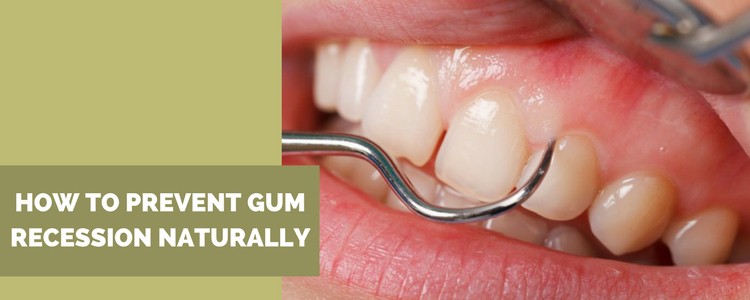
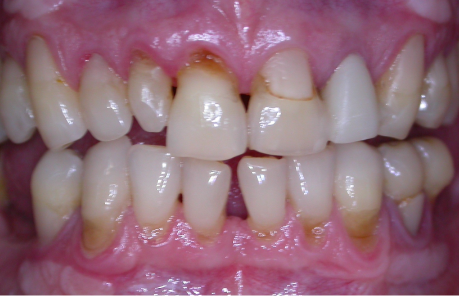
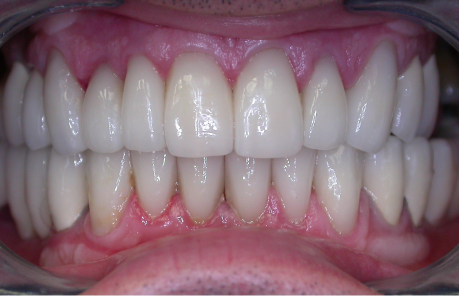
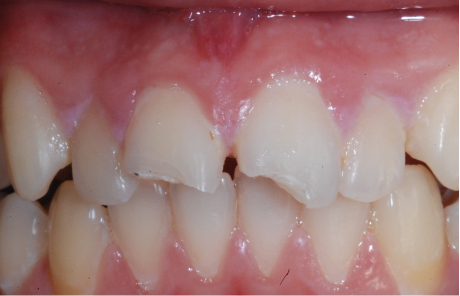
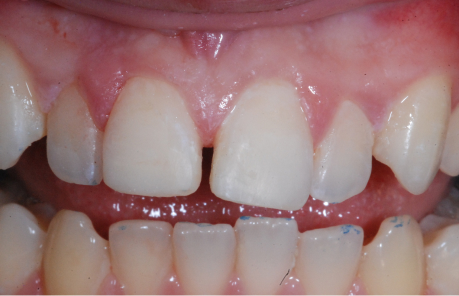
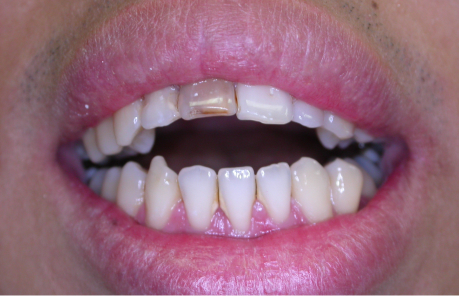
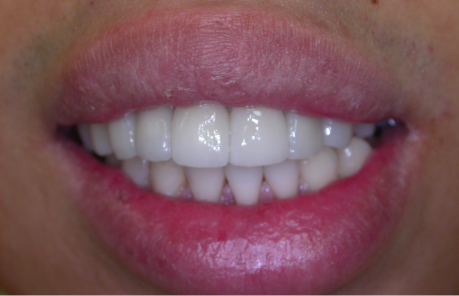
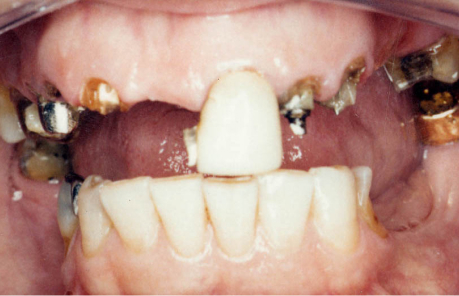
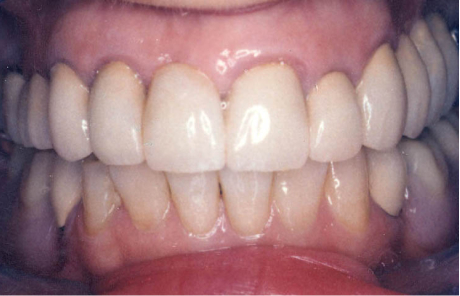
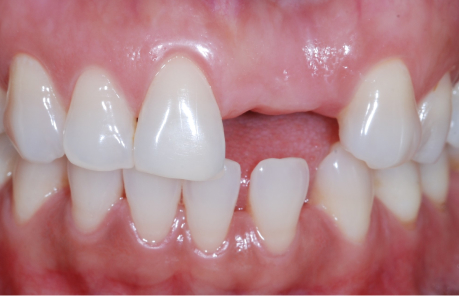
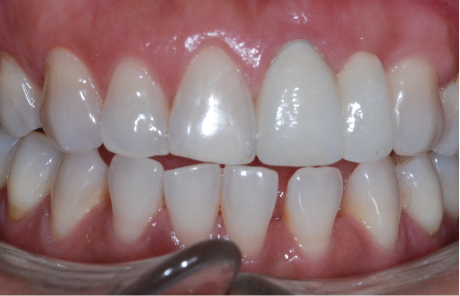

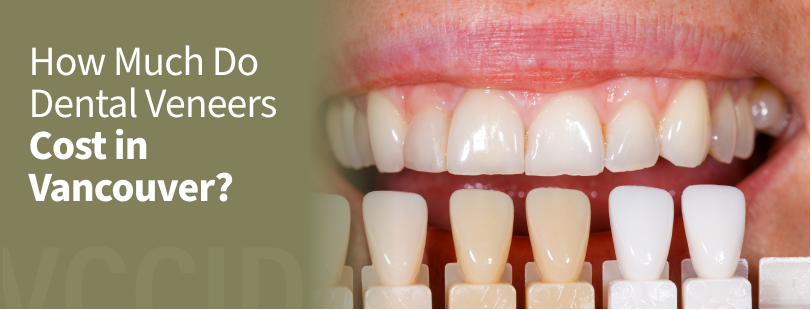
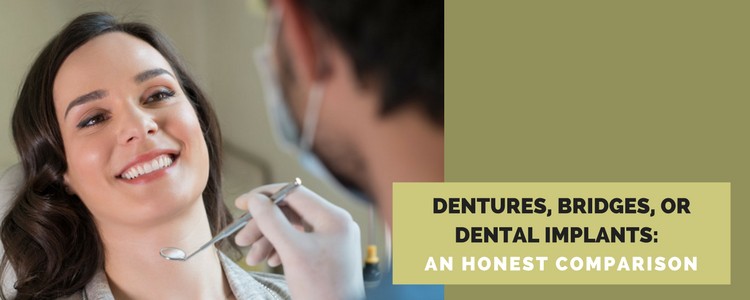


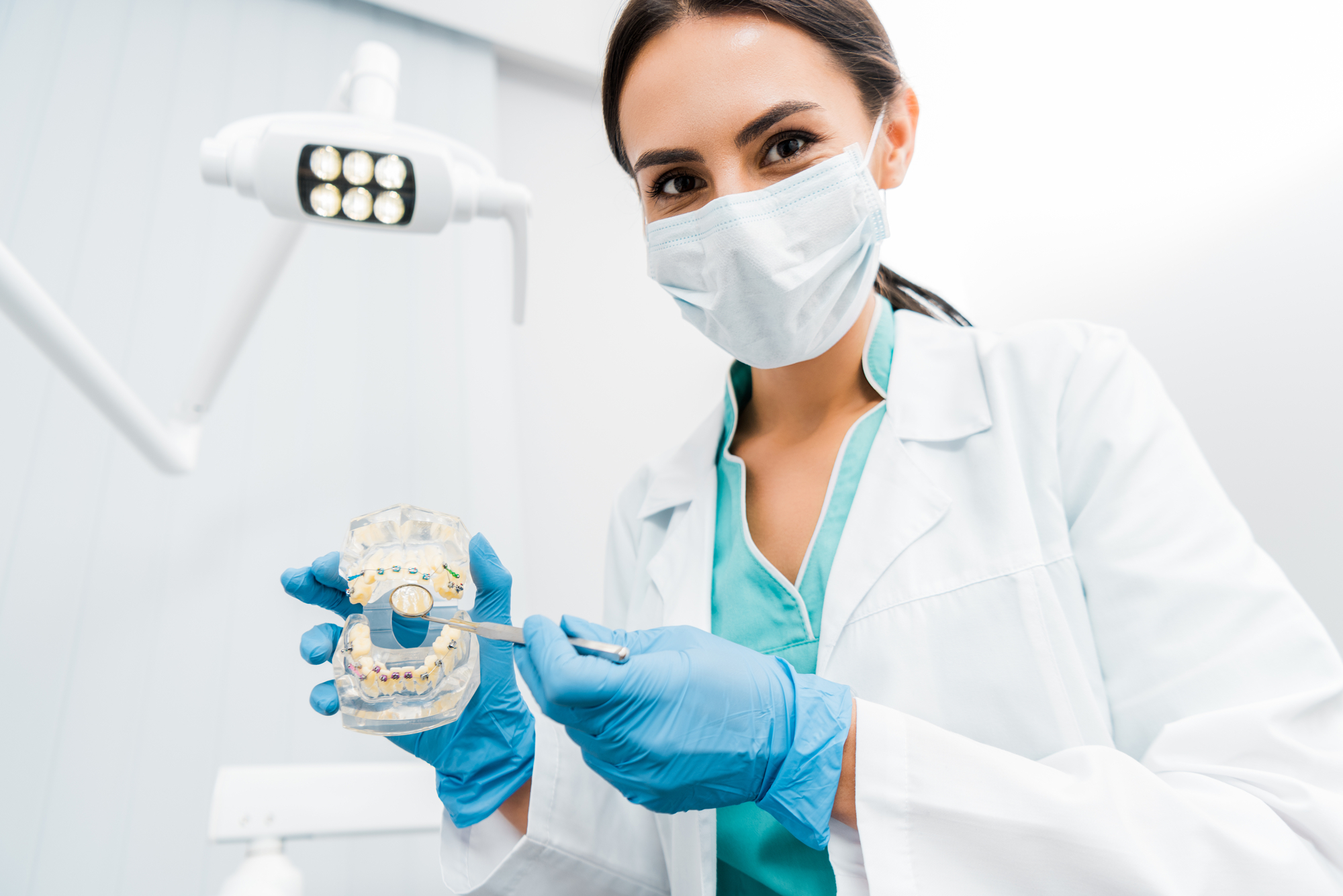
16 thoughts on “How To Prevent Gum Recession Naturally”
Thank you Dr Balogh, the column was interesting and informative reading. One question. Will the use of hydrogen peroxide actually improve receded gums?
Hi Barry,
Hydrogen peroxide will help to reduce inflammation and bacterial infection, but it won’t help to improve gum recession. It may help prevent it in the sense that if your gums are inflamed it will reduce any existing inflammation and potential bony changes under the gums. Unfortunately, the only way to improve gum recession once it has occurred is surgically.
Sincerely,
Dr Balogh
Dr. Balogh
My name is Michelle. I have minor gum recession. I use a soft bristle toothbrush, crest toothpaste and mouth wash. Do you have a response how to stop or slow down receding gums? I heard Mrrth gum, Green tea and Neem help naturally for healthy gums. Can you recommend anything? I don’t smoke should I avoid coffee?
I’m taking Vitamin Calcium/magnesium/zinc/d, Vitamin C, B-complex 100. Please offer help. Thank you. Michelle
Hello Michelle,
Thank you for your comment.
It used to be taught that all gum recession was due to excessively hard brushing or brushing incorrectly.
It can be caused by poor hygiene if there is a lot of plaque or calculus causing inflammation at the gumline. However most of the time, it is a result of trauma to the tooth.
It can be as subtle as a heavier bite in non-functional areas. Have your bite checked to see if this is a factor.
Other things such as clenching or grinding the teeth will also cause this recession. For some people, the gum naturally is very thin, which makes recession all the more likely.
The recession is not caused by nutrition, except maybe in extreme cases. Unfortunately, nutrition will not spontaneously correct it when it has progressed either.
Sincerely,
Dr. Balogh
I recently went to a new dentist and was told I had gum disease had to undergo a deep cleansing which cost $500 with insurance (can’t afford it) any who. I had a cleaning done last year and my dentist didn’t tell me she saw any gum disease. I think the new dentist just wanted a fresh start with my mouth since it was my first time there…I will be going back to my old dentist. I’ve read where peroxide can help and maybe using a Sonicare toothbrush. Help any advice because I can’t afford the deep cleansing. Thanks in advance for your response.
Hello,
Thank you for your comment.
Certainly, there are things that you can do at home to improve your gum health and reduce the progression or effects of gum disease. Thorough brushing and flossing, using a Sonicare or similar brush, waterpik for deep pockets and hard to reach areas, oil pulling etc.
However, if you have existing bone loss, deep pockets and calculus build-up then this will need to be removed before you can expect much improvement in your gums. Without seeing the condition in person or at least some x-rays, it is difficult to say which of your dentists is more correct.
It would be best to ask your dentist to thoroughly explain why they feel you do or don’t need the “extensive” cleaning.
I hope this helps.
Sincerely,
Dr. Peter Balogh
Dr Balogh,
I appreciate you sharing this info….I’m 63 and have advanced periodontal disease. I water pik every day, use a sonicare toothbrush, floss (not as regularly as I should), get cleanings 3x year, had more than my share of advanced gum cleanings, and I just keep losing teeth (2 this year, with implants, bone grafting, etc). It’s costing me a small fortune.
You mentioned oil pulling up top. Do you really think that works? I have yet to try it because I find it unpleasant, and I’m not really sure if it does anything. Would it help advanced perio disease?
thanks so much for offering your wisdom….
Hello Carol,
Thank you for your comment and kind words.
The oil pulling certainly seems to work based on my patients who do it.
However, I must say it is very subjective. It has yet to be clinically tested on a larger scale.
If you have really deep pockets one problem or
a limitation may be that the oil really will not reach much beyond a 3mm
pocket, so someone with advanced gum disease may not benefit as
much as someone else with lesser pocketing. You may be in a position for gum grafting if the gum recession is severe.
This may seem less cost effective but it can help to keep existing teeth, saving money in the long run.
Sincerely,
Dr. Balogh
Dear Dr. Peter Balogh,
I have periodontitis and require surgery but I cannot afford it. I ‘now’ have great oral hygiene but I clearly didn’t before. What should I do knowing that I can’t afford this operation?
Sincerely,
J
Hello Janae,
Thank you for your comment.
I can only assume the gum surgery was recommended to improve areas of the
mouth that couldn’t be done with traditional cleaning and regular
maintenance. Generally, there are cleaning procedures that can be done before surgery is required. (Deep cleaning, root scaling etc)
The best you can do if surgery is just not feasible would be to
do the absolute very best with your daily cleaning. That would mean
brushing, flossing daily as well as buying a waterpik.
The waterpik will help reach areas that brushing and flossing can’t and may help to reduce
the bacteria in these areas by rinsing them out.
Another thing to look into would be a dental
school, assuming there is one close to you. There are several universities that often require patients for students to work on. The students are supervised by dental professionals.
They often will provide dental services at a reduced rate and it may just make it affordable for you.
Sincerely,
Dr Balogh
Hello Dr Balogh
I went to my dentist for my regular cleaning and I was told I had a gum abscess. I was not experiencing any pain. I was told I would need my tooth pulled and have an implant. X-rays showed no problem in the tooth or surrounding bone. That tooth had already had a root canal. I decided to think it over. My research led me to the use of hydrogen peroxide. I used a q-tip to treat the area. After 2 weeks the previously visible white pimple on the gum is gone and the area looks normal. I have never felt any pain. I would appreciate your thoughts.
Hello Harry:
Gum disease essentially a chronic infection. If there was a pimple, it was probably what we call a fistula. Essentially infection from within the bone and below the gum tissue is working its way to the surface. Certainly more vigourous and frequent cleaning both at home and in a dental office can slowdown or even stop gum disease, but we have not figured outa way to grow back bone….which is essentially what happens. Whether the tooth can be saved and for how long is impossible to determine without first hand clinical evaluation etc. I would say carry on with your home care as best possible and do follow up with your dentist but if the bone loss is severe be prepared that you may not be able to delay the inevitable forever.
Sincerely
Dr Balogh
Hello James: Certainly peroxide is a good agent to use periodically to treat an infection. However if you had a pimple (what we call a fistula) it is from an infection that is deep within the gums and has made its way to the surface. Sorry to say but that infection will likely keep coming back. It is only your immune system +/- the peroxide that has knocked it down a bit allowing the pimple to heal.
Sincerely, Dr Balogh
Dr. Balogh, Thank you for all of the time you take to answer these comments. This post was really helpful and greatly appreciated!
I will share my personal experience . I have a crown on a molar. The gum above it became swollen, red and very painful. I was not near a dentist. I took a round cotton pad used to remove cosmetics and soaked it in oregano oil, I then formed it into a little long pad and placed on my gum inside my mouth over night – It tasted awful but it drew out the infection overnight. The infection drained and the pain was gone! A few months later it recurred so I did the same thing and it drained. However this time I repeated the procedure every night for several days. Then I did this same procedure with Himalayan sea salt at night for several weeks even though the infection seemed to be gone. – basically a old fashioned police. Now I continue to rinse my mouth morning and night with a mixture of Himalayan salt water and oregano oil after I brush. The infection has never returned – this was over a year ago. My gum looks healthy and no pain. I also focused on what I think was an already good diet and focused on increasing foods high in B and C vitamins, I also added pulling – every day for a couple of weeks – but now I oil pull for 20 min 2 times a week with sesame oil and oregano oil as soon as I rise in the morning and at night before bed after brushing. This has worked for me. The infection has not returned. My gums and teeth are better than ever before – and my teeth are whiter. I know that pulling is not pleasant but I suggest that one persist as I feel this is a great dental habit. Start with 1 min and increase the time. I have very close teeth and dental floss always gets caught and I can not get it out. Pulling not only disinfects the mouth but it can free food particles that a toothpick, water pic or brushing does not remove. The best to all who struggle with dental health problems. Hope my experience helps someone. 🙂
Hello Suzanne: Good for you…all the things you tried are very good at eliminating bacteria and creating healthy gums. Many of the4se “old” remedies have been forgotten but are beginning to return as people search for home remedies. Thank you for sharing.
Dr Balogh